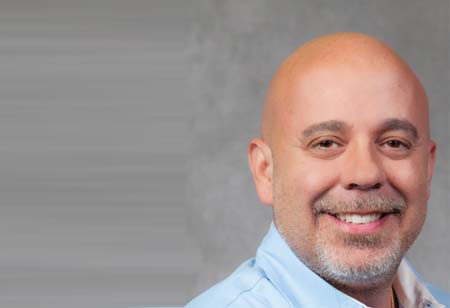Thank you for Subscribing to Healthcare Business Review Weekly Brief

Healthcare Technology and its Relationship with the Patient Experience
Healthcare Business Review
How technology interacts with the Patient Experience can be intriguing. This is particularly relevant as healthcare organizations and physicians nationwide analyze the healthcare landscape. Looking Ahead: The US healthcare landscape and the Patient Experience raise many operational questions. Are you prepared for a value-based care model with medical and operational technology?
Without question, the development of medical technology is not slowing down. Rapid advancements require transparent and collaborative communication with physicians when examining the future of the healthcare landscape. This will allow for successful outcomes. Healthcare leaders should utilize technology to improve efficiency and enable easy access and affordable clinical care for all patients.
As payors (insurance companies) critically analyze why payment of care should be approved, diagnostic medical technology such as wearable diagnostic devices will impact how healthcare is provided. As sensor technology has advanced, so have health monitoring devices that collect patient data such as heart rate, blood pressure, sleep patterns, and activities of daily living. This wearable technology, containing biometric sensors, can accurately monitor general wellness and assist with disease management. The technology can even relay information to the physician, provide the patient with medication reminders, and store healthcare trends. This will improve the Patient Experience and assist with achieving successful clinical outcomes.
The technological growth does not stop there. Operationally, medical technology and software, such as patient trackers/status boards in an outpatient setting, can significantly improve clinical and operational throughput. This is currently uncommon. Clear and transparent communication with patients is vital to maintaining positive experience scores. We must be mindful that payors heavily consider the patient experience as value-based care. Waiting in a lobby without an inkling of a status dehumanizes the healthcare experience. Full-service patient registration digital kiosks are another aspect of technological advancements that will aid in operational efficiencies. Patient registration kiosks can capture digital photos of insurance cards and accept payments. This is in addition to the routine registration process that can be completed through a kiosk system.
Although check-in kiosks have been used in airports for years, they are still in their infancy in hospitals and independent clinical settings. Because electronic medical records (EMR) software can now be utilized with a kiosk concept, the patient registration experience can be as simple as using your smartphone. This offers the dual advantage of a positive patient experience and building a brand reputation.
“Technology Can Profoundly Impact Healthcare In Many Ways. As We Work Together At All Levels, Let Us Not Forget What Our Foundation Was Built On: The Patient”
The most thrilling of medical advancements has been the recent development of artificial intelligence (AI) in healthcare. The most promising use of AI has been its integration into diagnostic imaging analysis, increasing the accuracy of diagnosing. It is speculated that AI applications will reduce healthcare costs by billions in just a few short years. Like all new things, this is a complete shift in healthcare culture and will take time to earn the trust of the key stakeholders. More importantly, we must maintain safe and high-quality healthcare no matter what. AI is also being reviewed as a physician tool that can be used to effectively and efficiently curb the clinical encounter. It can be as simple as a physician using their smartphone, and AI software will produce a comprehensive clinical dictation that meets all the payor requirements for that particular patient's insurance. This will reduce claim denials and help release a "clean" claim; the return on investment will quickly be validated. As clinical volume grows due to the after-effects of the pandemic, staff shortages, and lack of subspecialty physicians, we must aware of staff burnout. Employing artificial intelligence for physician dictation will help reduce physician burnout and allow a more balanced work-life for the doctor and the support staff.
Technology can profoundly impact healthcare in many ways. As we work together at all levels, let us not forget what our foundation was built on: the patient. If we keep them at the forefront of every decision, the patient experience and the quality of care will speak for itself. This will help close the gaps in healthcare disparities, prevent diseases, and improve the quality of life for all.









